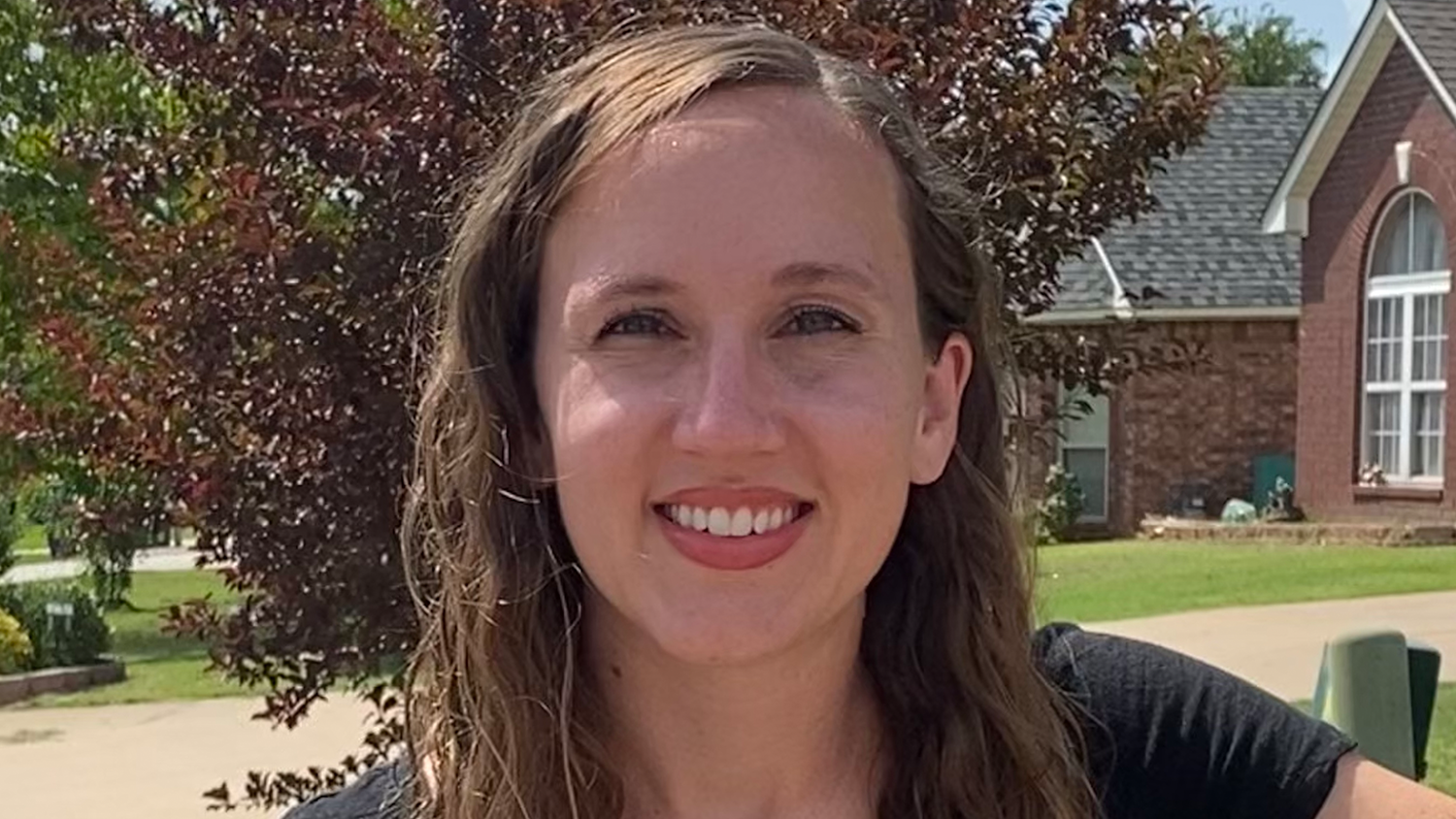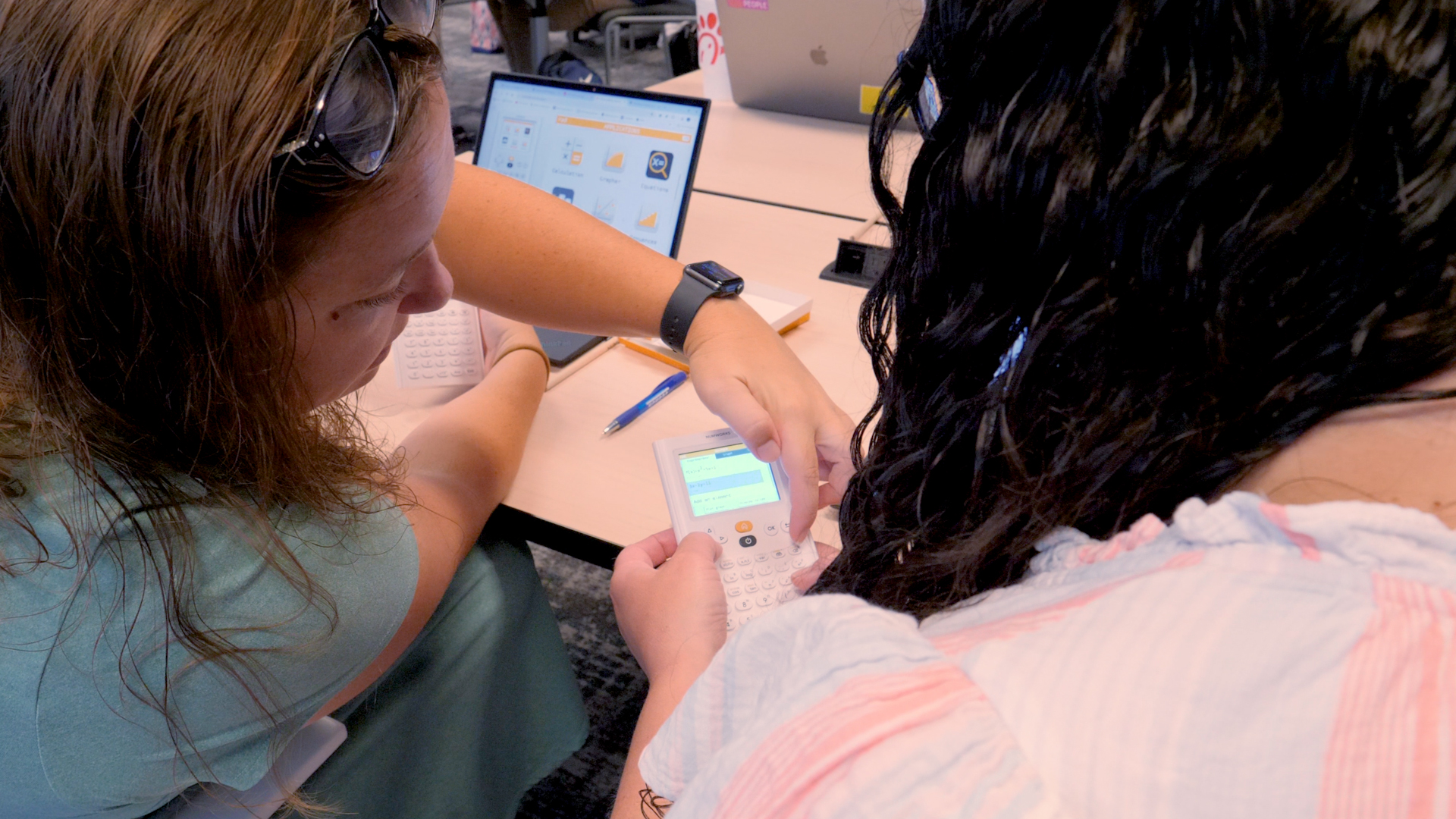Article from Assistant Professor Samantha Marshall Examines Mathematics Coaching as a Means to Justice-oriented Teaching

As a former high school mathematics teacher and director of mathematics, NC State College of Education Assistant Professor Samantha Marshall, Ph.D., has witnessed the various ways mathematics education can be unjust for certain groups of students.
At the school level, Marshall said she has seen students pushed out of advanced math courses and even into GED programs by administrators who feared they might not pass the state exam. At the classroom level, she saw students, particularly those of color, presented with culturally incongruent curricula as well as microaggressions and low expectations from teachers.
“One teacher told certain students that they were not ready for Advanced Placement despite their stellar performance in prerequisite classes. Similarly, one administrator told me to simply teach procedurally for ‘that class’ under the assumption that multilingual students were incapable of rigorous mathematical thinking,” Marshall said.
As an assistant professor of curriculum and development, Marshall’s research focuses on the intersection of teacher learning and justice-oriented education that supports anti-oppressive forms of education.
Her most recent article, “What Makes Mathematics Teacher Coaching Effective? A Call for a Justice-Oriented Perspective,” provides insights into what existing research about mathematics teacher coaching currently offers and illuminates critical gaps to inform work toward justice-oriented mathematics teaching.
In the article, which was published in the Journal of Teacher Education, Marshall and her co-author, Patricia M. Buenrostro, Ph.D., note that coaching has the potential to be responsive to teachers’ learning needs and to help them learn how to be more responsive to students’ cultural, linguistic and personal strengths, which can help them teach in more justice-oriented ways.
“Because they work so closely with teachers in specific schools and specific communities, coaches are in a position to know the strengths, challenges and forms of injustice in the local learning environment,” Marshall said. “Building on this situated knowledge, coaches can help teachers think about, for example, culturally-sustaining pedagogy not just in the abstract, but rather as it relates to their particular students and with their particular mathematics content.”
The literature review examines 29 previous studies and categorizes existing research into four main programs: coaches activities and relationships, the effects of coaching on student assessment scores, the effects of coaching on teachers’ practices or behaviors and the effects of coaching on teachers’ knowledge or beliefs.
In the review of studies focused on coaches’ activities and relationships, existing research shows that coaching can be more responsive than traditional forms of professional development, as it is often shaped by the contexts in which it occurs. This, the paper states, could be crucial for teachers’ learning of justice-oriented approaches as coaching can respond to teachers’ learning needs as well as patterns of marginalization and strengths of students in a given school.
Existing research related to the effects of coaching on student assessment scores found that the presence of coaches increased student test scores in mathematics. However, Marshall argues that using test scores alone as a way to measure success is problematic.
Assessments, she said, represent only one snapshot of students’ mathematical understanding. In addition, students’ scores may improve while educators are using harmful teaching methods, which is counterproductive to achieving justice-oriented education. For any future studies that utilize assessment scores, the article recommends that findings be triangulated with other qualitative measures, such as examining how coaching can shape classroom practices and teachers’ sensemaking about their practice.
“Research has shown again and again that tests tend to be culturally biased, which makes the conclusions drawn from them even more problematic,” Marshall said. “Too often, the narrative that results from such studies is that there is an ‘achievement gap’ between students of color and white students, reinforcing racist ideas about students’ capability in mathematics.”
In examining studies focused on the effects of coaching on teachers’ knowledge or beliefs, Marshall and her co-author note that existing research shows that coaches are able to support teachers to revise assumptions about students and good teaching practices by taking teachers’ feelings and experiences into account and drawing on their own situated knowledge.
Combining existing methods related to coaches’ support of teachers’ learning and how teacher behavior might be changed through coaching with robust justice-oriented views of teaching, the paper says, could support the design of future coaching activities that lead to justice-oriented learning for teachers.
The final group of studies examined in the paper looked at the effects of coaching on teachers’ practices or behaviors. Marshall said she is concerned about the overwhelming focus among these studies on mathematical and pedagogical practices that are framed as suitable for all students.
While there is nothing inherently wrong with these practices, Marshall said that coaches should not rely solely on the “one size fits all” approach.
“Presuming that a pedagogy is best for all students is a risky bet, and a great deal of research supports the position that pedagogical approaches should be responsive to students’ learning trajectories, cultures and assets,” she said. “Complex instruction can still marginalize students when applied uncritically. One of the affordances we see of coaching is that, since coaches are often locally-based, they can more easily tailor their support for teachers to the strengths and learning needs of the specific students their teachers work with.”
Being able to respond to the needs of specific school- and classroom-based situations is important, Marshall said, as mathematics is a subject that often stratifies students in ways that some teachers might not be cognizant of.
For example, Marshall said she previously worked with one school where Black students reported that their peers frequently ignored their contributions during group work activities in their math classes.
“Even a teacher focused on high-quality pedagogy, such as complex instruction with rich mathematics, might still overlook this type of marginalization, which can have serious consequences for students’ mathematical learning and identity-development,” Marshall said. “We know that pedagogies that ignore injustice tend to exacerbate it, so if we want to see more equitable outcomes for students, we have to think about more than only math content or one size fits all teaching approaches.”
Marshall said she hopes her paper will help the mathematics education field better conceptualize and implement justice-oriented perspectives in both the practice of and research on coaching.
She wants mathematics coaches to be able to recognize how their unique position can help them support teachers while accounting for students’ communities, strengths, values and needs and that researchers are able to ask deep questions about the ways in which coaching can shape teachers’ and students’ learning experiences.
- Categories:


